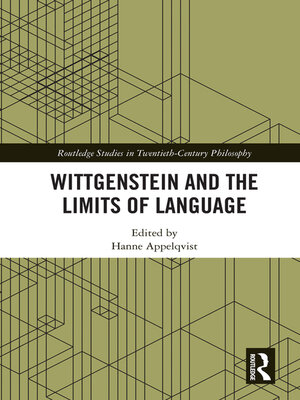Wittgenstein and the Limits of Language
ebook ∣ Routledge Studies in Twentieth-Century Philosophy
By Hanne Appelqvist

Sign up to save your library
With an OverDrive account, you can save your favorite libraries for at-a-glance information about availability. Find out more about OverDrive accounts.
Find this title in Libby, the library reading app by OverDrive.



Search for a digital library with this title
Title found at these libraries:
| Library Name | Distance |
|---|---|
| Loading... |
The limit of language is one of the most pervasive notions found in Wittgenstein's work, both in his early Tractatus Logico-Philosophicus and his later writings. Moreover, the idea of a limit of language is intimately related to important scholarly debates on Wittgenstein's philosophy, such as the debate between the so-called traditional and resolute interpretations, Wittgenstein's stance on transcendental idealism, and the philosophical import of Wittgenstein's latest work On Certainty.
This collection includes thirteen original essays that provide a comprehensive overview of the various ways in which Wittgenstein appeals to the limit of language at different stages of his philosophical development. The essays connect the idea of a limit of language to the most important themes discussed by Wittgenstein—his conception of logic and grammar, the method of philosophy, the nature of the subject, and the foundations of knowledge—as well as his views on ethics, aesthetics, and religion. The essays also relate Wittgenstein's thought to his contemporaries, including Carnap, Frege, Heidegger, Levinas, and Moore.







